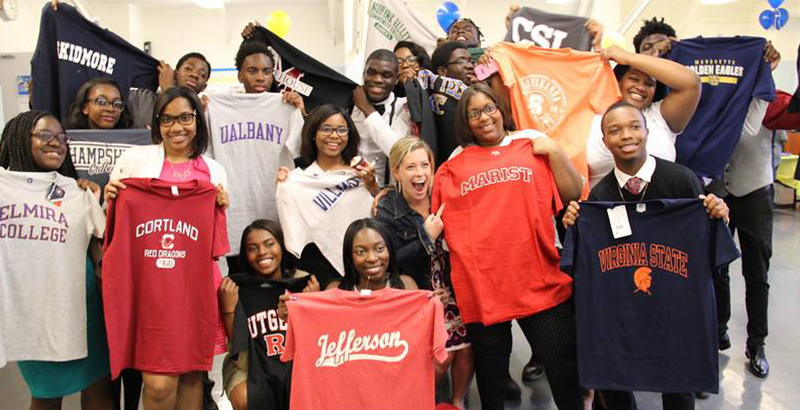Whitmire: New Study of Suburban Charter Middle Schools Misses Point — Again — About Low-Income, Minority Charter Grads and College Success

There seems to be an odd incuriosity about whether charter school networks are living up to their long-standing goal: We will greatly increase the odds that your child will earn a college degree.
It was an early promise made to prospective parents by charter leaders. And now that some of the older charter networks have a sizable number of alumni who are six years out — the accepted time period for measuring how many earned bachelor’s degrees — it’s possible to start answering that question.
But in all the intense chatter out there about charter schools, I hear almost nothing about that.
That stands in sharp contrast to the great interest shown in squeezing charters, especially in progressively bluer states such as California and New York. There, legislators and other critics are determined to slap moratoriums on charter expansions, ramp up their busy-work accountability demands and unionize more of their teachers (and are likely to succeed).
Although it’s never openly stated, that would have the obvious effect of sucking up resources at the charters, thus tamping down student gains. That, in turn, would abate the embarrassing (to the teachers unions) achievement gaps between districts and charters that in cities such as Los Angeles, New York and Boston greatly favor the charter students.
Also greatly talked about: a panel drawn up by the newly elected governor of California to assess whether charter schools negatively affect district schools. I can save the panel the time and money: When parents choose charters, their children aren’t attending district schools.
So yes, there’s an impact. Exactly the same impact that occurs when well-off parents pack up and move to the suburbs or enroll their children in private schools. But the latter is never discussed — only the former.
The California panel’s eventual conclusion is so obvious it’s almost too easy to predict that similar panels will pop up in other states, also calling for moratoriums on charters.
So, there’s lots of interest in whether charters impact districts, but a striking incuriosity about whether charters are fulfilling their mission. The oddest example of all came this week via a federally sponsored study that asked the question: Does attending a charter middle school affect the likelihood you will earn a college degree?
By choosing middle schools rather than high schools, and by selecting mostly suburban schools with high college attendance rates in the control group, the study seemed designed to produce a “no” answer — and it did. Shocking.
If the study designers had asked a question that parents actually want to know — Does graduating from a charter school improve my child’s chance of earning a college degree? — they could have looked at the high schools run by the big “no excuses” (nobody wants to call themselves that anymore, but they are) charter networks that serve not suburban students but low-income minorities, nearly all in urban areas. Isn’t that where we want charters to succeed — places where students rarely win four-year degrees?
If they had searched in the appropriate places, they would find this: The alumni at these networks earn bachelor’s degrees at rates that range between two and four times as high as those for comparison students.
Some networks even outperform those rates. Within a few years, the low-income, minority alumni from Uncommon Schools in Newark, for example, are expected to match the college graduation rate of students from wealthy families. According to the network’s tracking system, within six years, the alumni there are on track to earn bachelor’s degrees at a rate of 70 percent, far above the 58 percent rate for well-off families nationally.
Given the troubling inequities we’re seeing in wealth and income, much of which can be traced back to unequal education opportunities, you would think there would be active public discussions about these college success rates. Aren’t these the best-ever antidotes to admissions scandals about rich-but-not-that-bright students winning seats at top colleges due to parental bribes?
But no. The very deliberate incuriosity persists. There’s plenty to be said about moratoriums demanded by the teachers unions, little to be said about whether charters present at least a partial solution to our painful education inequities.
Richard Whitmire is the author of several books, most recently “The B.A. Breakthrough: How Ending the Diploma Disparities Can Change the Face of America.” Whitmire is a member of the Journalism Advisory Board of The 74.
Get stories like these delivered straight to your inbox. Sign up for The 74 Newsletter

;)
